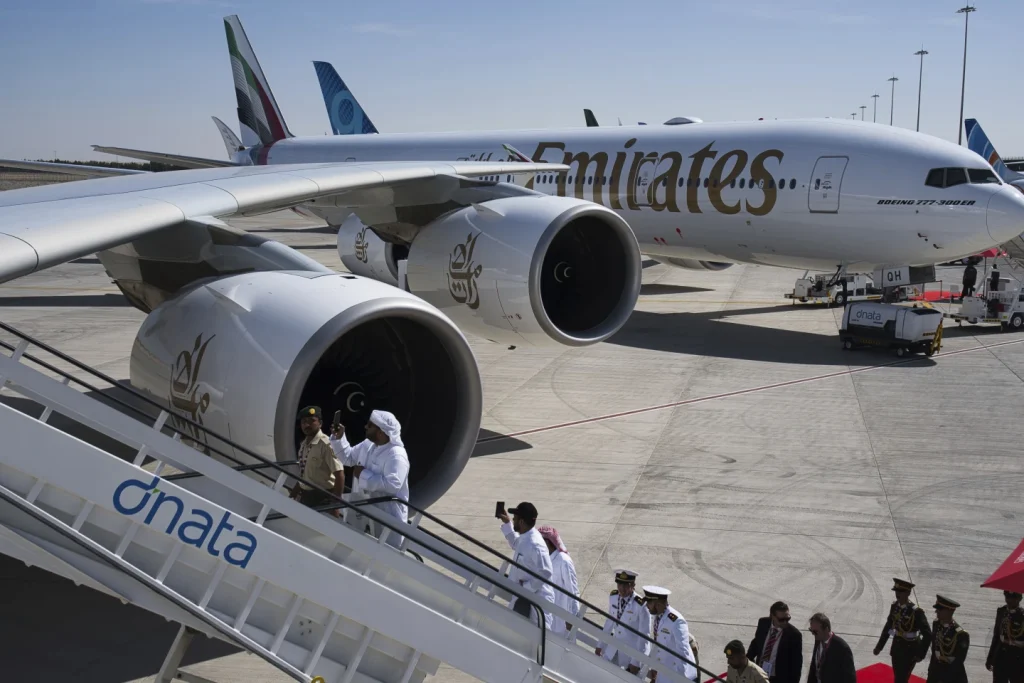The Dubai Air Show commenced with a momentous announcement from Emirates, as the long-haul carrier revealed its staggering $52 billion purchase of Boeing Co. aircraft.
This significant investment serves as a testament to the resilience of the aviation industry in the wake of the disruptions caused by the global pandemic.
In a parallel move, FlyDubai, Emirates’ low-cost sister airline, solidified its commitment to expansion with an $11 billion order for 30 Boeing 787-9 Dreamliners.
These acquisitions signal a promising start for Boeing Co. at the air show, with the potential for additional lucrative deals on the horizon.
The presence of Dubai’s crown prince, Sheikh Hamad bin Mohammed Al Maktoum, at the announcement underscored the significance of the occasion.
Emirates’ CEO and Chairman, Sheikh Ahmed bin Saeed Al Maktoum, emphasized that the deal encompasses the purchase of 90 Boeing 777 aircraft, comprising 55 777-9 variants and 35 777-8s.
This momentous development not only reflects the resurgence of the aviation sector but also underscores the strategic vision of Emirates and FlyDubai in positioning themselves for sustained growth and success in the years to come.
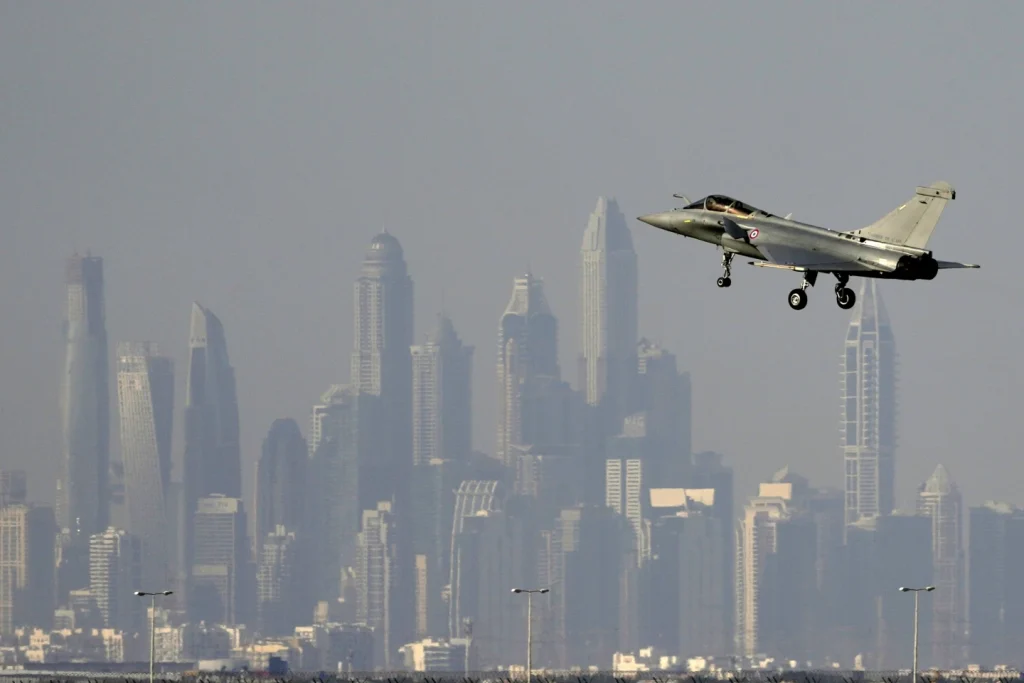
Emirates has announced its decision to further expand its fleet by adding an additional five 787 Dreamliners to its existing order of 30 aircraft.
This decision was confirmed by Sheikh Saeed, the airline’s CEO, during a press conference held earlier today. The addition of these new aircraft demonstrates Emirates’ commitment to continuously enhancing its operations and providing its passengers with the latest and most advanced technology in aviation.
The 787 Dreamliner is renowned for its fuel efficiency, passenger comfort, and cutting-edge features, making it a popular choice among airlines worldwide.
With this expansion, Emirates aims to strengthen its position as a leading global airline and continue to offer unparalleled service to its customers.
The airline’s strategic investment in the 787 Dreamliner further solidifies its status as a key player in the aviation industry and reinforces its dedication to innovation and excellence.
This decision also reflects Emirates’ confidence in the long-term growth and sustainability of the aviation sector, despite the challenges posed by the ongoing global pandemic.
Overall, the addition of these five new 787 Dreamliners marks an exciting development for Emirates and signals the airline’s ongoing commitment to delivering exceptional travel experiences to its passengers.
The recent announcement of Emirates’ commitment to purchase 30 Boeing 787-9 Dreamliners and 30 777X aircraft has been met with great enthusiasm from both the airline and the aircraft manufacturer.
The deal is not only a significant boost to Boeing’s bottom line, but also to the global aviation supply chain, as hundreds of thousands of jobs will be supported through the production and delivery of these aircraft.
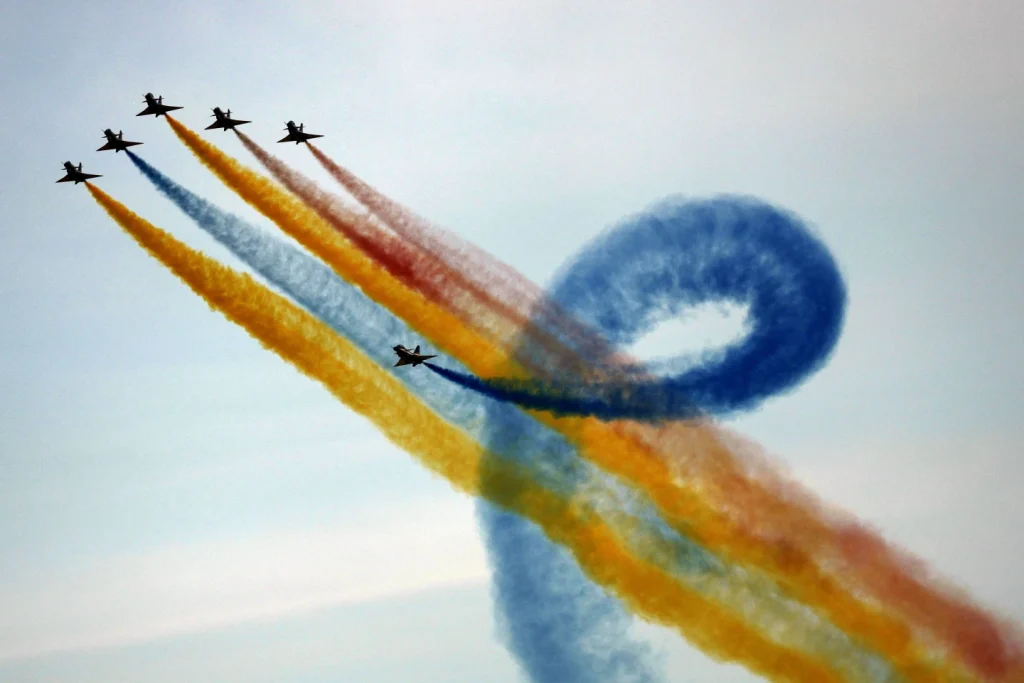
Emirates’ strategic focus on the 777 aircraft, in particular, is a testament to its commitment to connecting cities on all continents nonstop to Dubai.
With the 777 at the center of Emirates’ strategy, the airline is poised to continue its growth and expansion in the years to come.
Boeing’s executive vice president, Stan Deal, lauded the deal as a reflection of Emirates’ vision for the future, and a testament to the strength and durability of the Boeing-Emirates partnership.
This long-term commitment is a clear indication of the confidence that both Emirates and Boeing have in each other, and in the future of the aviation industry as a whole.
It is indeed impressive to see how the aviation industry has bounced back after the challenges posed by the coronavirus pandemic.
The $52 billion purchase of Boeing Co. aircraft by Emirates and the $11 billion order of Boeing 787-9 Dreamliners by FlyDubai are significant milestones that demonstrate the resilience and growth potential of the airline industry.
The announcement of the purchase of 90 Boeing 777 aircraft by Emirates, witnessed by the crown prince of Dubai, Sheikh Hamad bin Mohammed Al Maktoum, is a testament to the airline’s commitment to expanding its fleet and enhancing its long-haul capabilities.
With the total number of outstanding Boeing 777 orders for Emirates now reaching 205 aircraft, it is clear that the airline is positioning itself for future growth and success in the global aviation market.
It is interesting to note the significance of FlyDubai’s order of wide-body aircraft, marking a major change for the airline which has primarily operated Boeing 737 single-aisle aircraft for shorter distances.
The separate nature of FlyDubai’s order from Emirates, despite both airlines being owned by the Investment Corporation of Dubai, highlights the strategic diversification and expansion efforts of the sovereign wealth fund in the aviation sector.
The decision of Emirates CEO and Chairman Sheikh Ahmed bin Saeed Al Maktoum and FlyDubai officials to leave the news conference without taking questions is notable, as it deviates from the usual practice of engaging with the media and stakeholders during sales announcements.
This may reflect a shift in communication strategy or a desire to maintain focus on the significance of the announced deals.
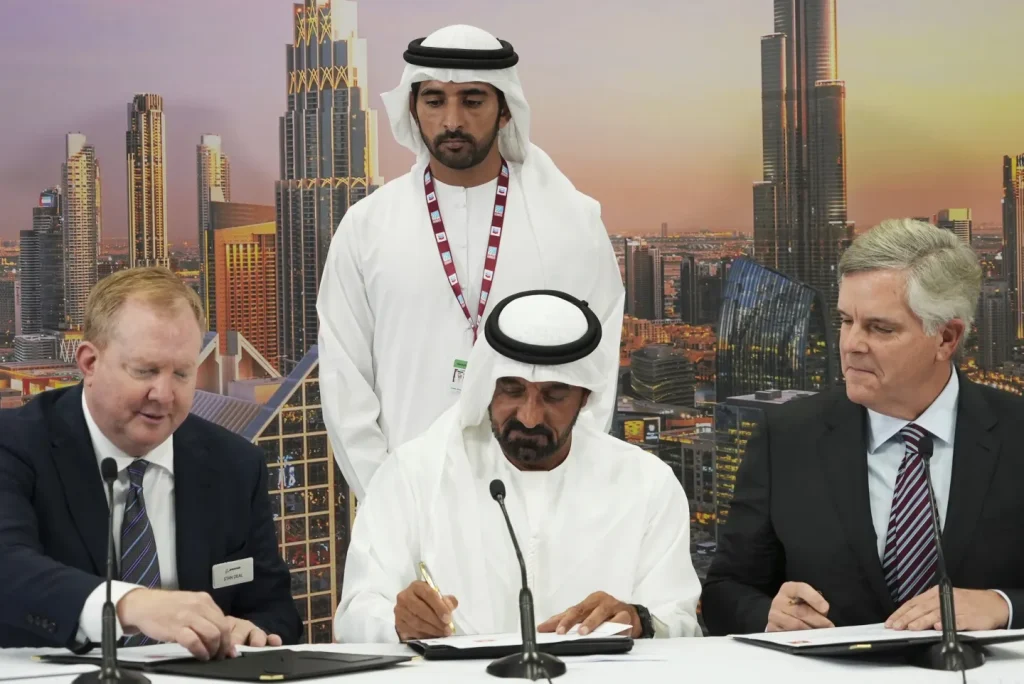
The geopolitical context of the air show, particularly amidst the Israel-Hamas war and Russia’s war on Ukraine, adds an additional layer of complexity to the event.
The influence of these regional tensions on the discussions and negotiations at the air show is likely to be significant, as stakeholders navigate the implications of these conflicts on the aviation industry and global travel.
The presence of the U.S. Air Force at the air show, with a display featuring a supersonic B-1 bomber, A-10 Thunderbolt II, and an F-35 fighter jet, underscores the strategic and military dimensions of the event.
These aircraft, which have been deployed in the Middle East as a deterrent in the context of recent tensions, serve as a reminder of the interconnectedness of aviation, geopolitics, and security in the region.
Overall, the developments at the Dubai Air Show reflect the dynamic and multifaceted nature of the aviation industry, encompassing commercial deals, strategic partnerships, geopolitical considerations, and technological advancements.
It will be interesting to see how the event unfolds over the coming days and the impact it will have on the future of aviation in the region and beyond.
The IAI stand, which proudly displayed the slogan “Where Courage Meets Technology,” was noticeably vacant and cordoned off on Monday morning as attendees flocked to the show.
Meanwhile, a stand for Rafael offered coffee to visitors, although there were no sales representatives present.
Despite efforts to obtain a comment from an attendant, there was no immediate response. Additionally, Rafael sponsored a gathering of air force commanders at a lavish Dubai hotel on Sunday, underscoring the delicate balance being maintained by the UAE in the midst of regional tensions stemming from the Israel-Hamas conflict.
Notably, the UAE, a federation comprising seven sheikhdoms, formalized diplomatic ties with Israel in 2020.
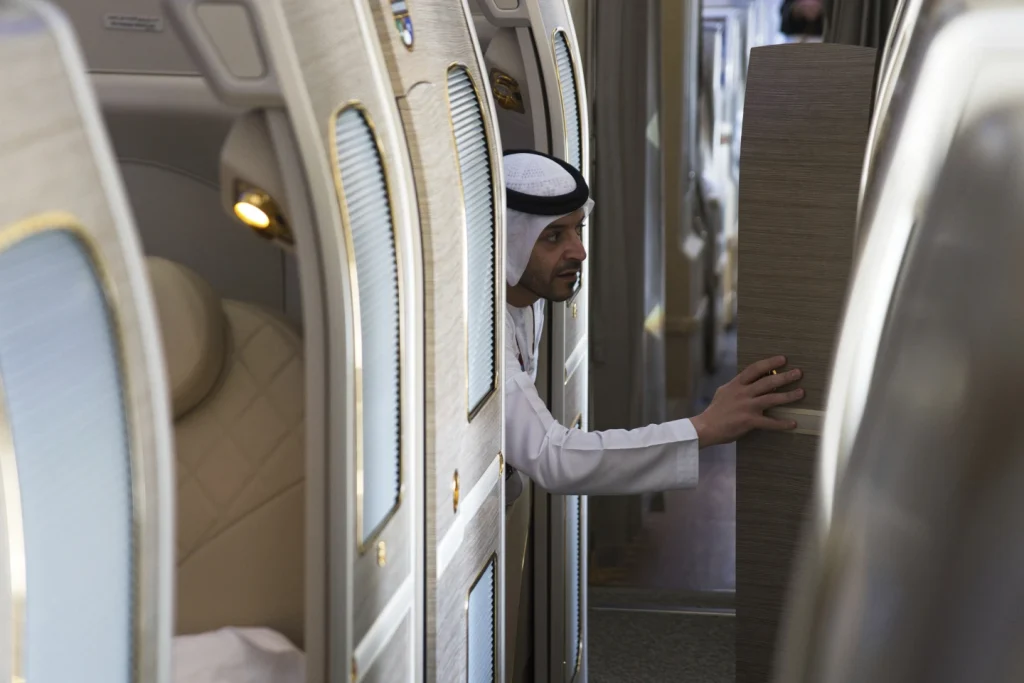
Furthermore, Russian Helicopters had indicated that their staff would be present at the air show, having previously participated in the Abu Dhabi arms fair earlier this year despite facing sanctions from the U.S. and other countries due to Russia’s military actions in Ukraine.
In a similar vein, Roscosmos, the Russian state space company, and the Russian Knights, the precision flying team of the Russian air force, were also in attendance at the show.
The recent Dubai Airshow showcased a range of prominent figures in the aviation industry, including Gen. Khalifa Hifter and Afghan Taliban Envoy Badruddin Haqqani.
The event also highlighted the resurgence of global aviation following the COVID-19 pandemic, with air traffic levels reaching 97% of pre-pandemic levels.
Middle Eastern airlines, in particular, have experienced a 26.6% increase in September traffic compared to the previous year, signaling a strong recovery in the region.
Emirates, a key player in the industry, reported record half-year profits of $2.7 billion, reflecting the airline’s resilience and ability to adapt to the changing market conditions.
Additionally, the creation of Riyadh Air, a new Saudi carrier, and its order of up to 72 Boeing 787-9 Dreamliner jetliners further underscore the growing demand for aircraft in the region.
As the aviation sector continues to rebound, these developments point to a promising future for the industry and its stakeholders.
Turkish Airlines is poised to make a groundbreaking purchase of 355 aircraft from Airbus, a move that would include a whopping 250 A321neo aircraft, as reported by the state-run Anadolu news agency.
This potential acquisition signals a significant investment in the airline’s fleet and underscores its commitment to expanding its operations.
In a similar vein, Indian airlines have also been active in the market, demonstrating a strong appetite for new aircraft.
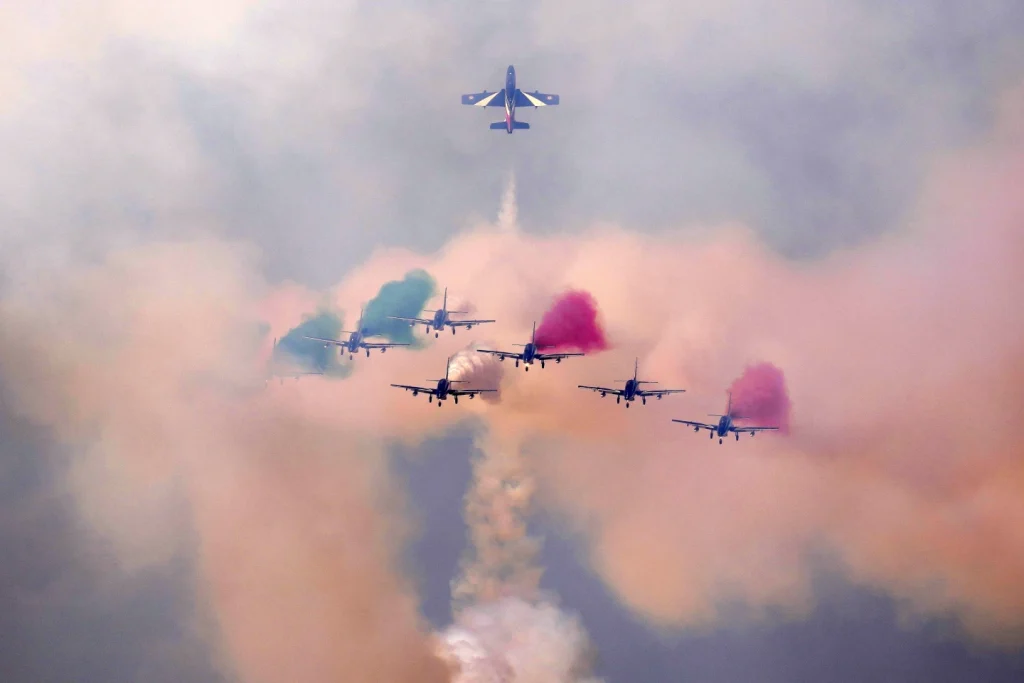
Furthermore, Boeing Co. revealed on Monday that SunExpress, a carrier jointly owned by Turkish Airlines and Lufthansa, has expressed interest in acquiring up to 90 single-aisle Boeing 737 MAX aircraft.
This deal encompasses 28 Boeing 737-8s and 17 Boeing 737-10s, with the potential for an additional 45 Boeing 737 MAX aircraft.
Although the financial details of this agreement have not been disclosed, it represents a significant development in the aviation industry.
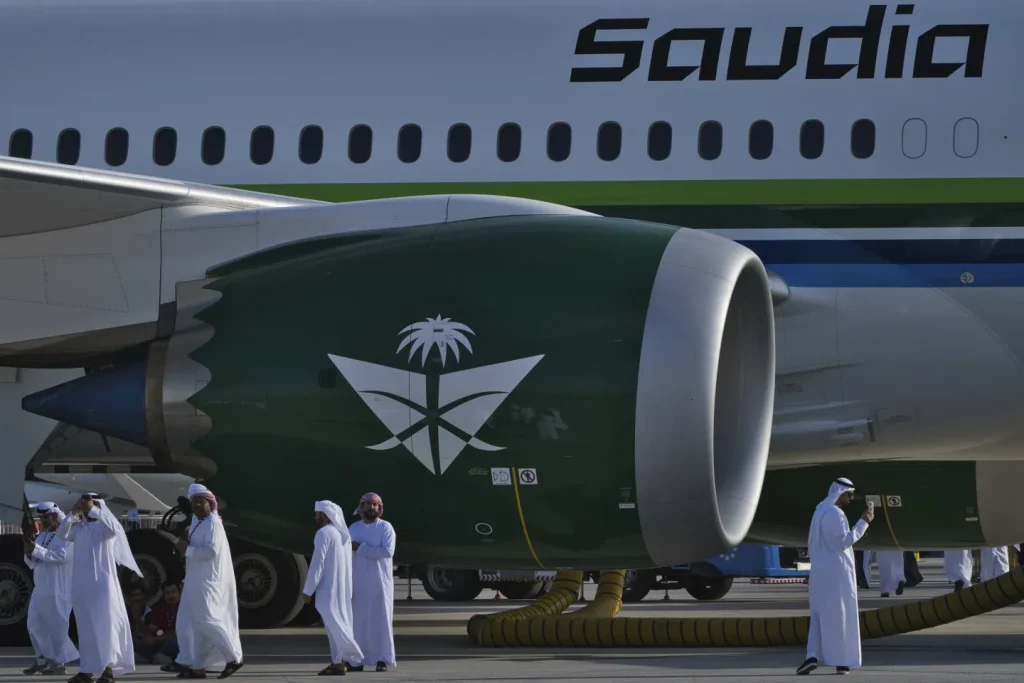
Additionally, Airbus announced that airBaltic of Latvia has placed an order for 30 single-aisle A220-300s, while Boeing confirmed that Royal Jordanian and Royal Air Maroc have committed to purchasing a total of six 787-9 Dreamliners.
These recent transactions underscore the robust demand for new aircraft and the competitive landscape within the global aviation market.
